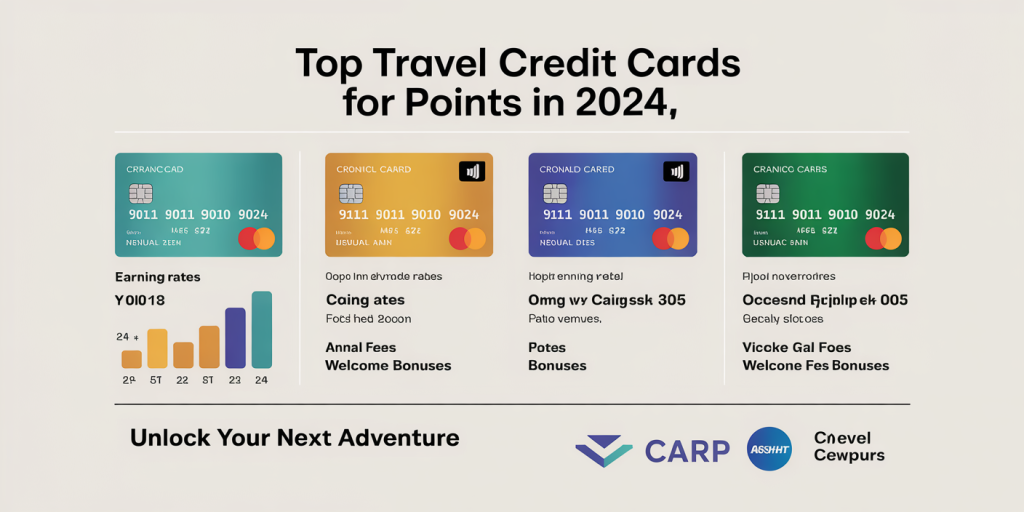Travel enthusiasts and frequent flyers alike recognize the immense value travel credit cards bring to the table. These cards not only facilitate seamless purchases but also reward users with valuable points or miles that can substantially reduce travel expenses. With a plethora of choices available, understanding which travel credit cards offer the best points potential—and how to leverage these rewards—is essential for optimizing every journey. This article explores top travel credit cards for points, detailing their features, benefits, and practical uses, while offering comparative insights to help travelers make informed decisions.
Why Travel Credit Cards Are Essential for Points Accumulation
Capitalizing on travel credit cards allows consumers to earn points on everyday spending that can be redeemed for flights, hotel stays, upgrades, and more. According to a 2023 report from the Credit Card Accountability Responsibility and Disclosure (CARD) Act Review, travel rewards credit cards constitute roughly 28% of the overall rewards cards market—a testament to their popularity.
Many cards offer bonus points in specific categories such as airfare, hotels, dining, and gas stations. For instance, the Chase Sapphire Preferred® Card grants 5x points on travel purchased through Chase Ultimate Rewards®, offering a lucrative way for frequent travelers to accelerate their rewards accumulation quickly.

Practical applications include redeeming points for free or discounted trips, which can save travelers hundreds to thousands of dollars annually. For example, a traveler earning 60,000 points through strategic use might redeem those points for a round-trip domestic ticket valued at approximately $750—turning everyday spending into tangible travel savings.
Top Travel Credit Cards for Points in 2024
Several credit cards stand out in the competitive travel rewards arena for their points-earning capacity and versatile redemption options. Below is a comparative table highlighting some of the best:
| Credit Card | Points Earning Rate | Annual Fee | Welcome Bonus | Key Perks |
|---|---|---|---|---|
| Chase Sapphire Preferred® | 2x points on travel & dining, 1x others | $95 | 60,000 points after $4,000 spend | Trip cancellation/interruption insurance |
| American Express Gold Card | 4x points at restaurants, 3x flights/hotels | $250 | 60,000 points after $4,000 spend | $120 dining credit, airline fee credit |
| Capital One Venture Rewards | 2x miles on every purchase | $95 | 75,000 miles after $4,000 spend | Up to $100 TSA PreCheck/Global Entry credit |
| Citi Premier Card | 3x points on travel, including gas | $95 | 60,000 points after $4,000 spend | Annual hotel savings benefit |
| Discover it® Miles | 1.5x miles on all purchases | $0 | Match all miles earned first year | No foreign transaction fees |
Each of these cards caters to slightly different travel and spending habits, which means the best card depends on individual preferences and travel patterns. For instance, the American Express Gold Card is an excellent choice for those who dine out frequently and fly often, while the Capital One Venture Rewards Card offers consistent flat-rate rewards appealing to users wanting straightforward points accruing.

Maximizing Points through Strategic Spending
Understanding the earning categories and aligning spending accordingly can multiply point accumulation. For example, the Chase Sapphire Preferred® Card’s 2x points on dining and travel encourage cardholders to put their dining bills and airfare purchases on this card rather than cash or debit. Suppose a user spends $500 monthly on dining and $300 on travel, they would earn 1,600 points per month, or 19,200 annually, excluding bonus events.
Moreover, many credit cards are integrated with partner airlines and hotel loyalty programs, unlocking transfer options. For example, Chase Ultimate Rewards points can be transferred 1:1 to partners such as United Airlines or Hyatt Hotels, where points often have higher redemption value. Real-life case studies show that travelers booking award flights via these partners can save upward of 30-40% compared to booking directly through the credit card’s portal.
To illustrate, Jane, a user of the Chase Sapphire Preferred®, transferred 50,000 points to United MileagePlus and booked a business class ticket valued at around $1,200 for just 50,000 miles – an effective redemption value of 2.4 cents per point, significantly above the average 1.5 cents per point when redeemed through Chase’s portal.
Benefits Beyond Points: Travel Protections and Perks
Apart from points accumulation, the best travel credit cards often offer significant travel-related protections that come in handy. Trip delay and cancellation insurance, lost luggage reimbursement, and emergency medical coverage are standard perks in high-end travel cards.
Take the Chase Sapphire Preferred® again—it offers comprehensive trip delay reimbursement up to $500 per ticket when delays exceed 12 hours. For frequent travelers, this benefit alone can offset the card’s annual fee, especially when flights get postponed due to weather or operational issues.
Airport lounge access is another coveted perk, usually associated with premium cards like the American Express Platinum, but some mid-tier cards offer lounge access through partnerships like Priority Pass Select. The Capital One Venture Rewards card, for instance, offers a credit for TSA PreCheck or Global Entry, which speeds up airport security lines and enhances the travel experience significantly.
Real cases reveal travelers who utilized travel protections ended up saving up to $1,000 in unforeseen travel expenses, underscoring the importance of these benefits beyond earning points.
Choosing the Best Card Based on Travel Style
Travel preferences play a pivotal role in determining the most suitable travel rewards credit card. Business travelers, for example, might prioritize cards offering bonus points on airfare and hotel bookings coupled with strong travel insurance features. Cards like the American Express Business Platinum® Card offer high point multipliers on flights and access to numerous global lounges.
On the other hand, casual travelers or vacationers who spend less on airfare but more on dining and entertainment would be better served by cards like the Chase Sapphire Preferred® or American Express Gold Card, which reward dining and everyday travel purchases.
Another consideration is international travel. For travelers who journey abroad frequently, cards without foreign transaction fees and those with broader partner networks for miles transfer—such as the Capital One Venture Rewards—are advantageous. According to the 2023 Global Traveler survey, 79% of international travelers prefer credit cards with no foreign transaction fees and wide acceptance worldwide.
Future Perspectives: The Evolution of Travel Rewards Cards
The travel credit card market continues to evolve rapidly, driven by technological innovation, changing consumer behavior, and airline and hotel industry partnerships. One emerging trend is the integration of AI-powered personalized rewards, where cardholders receive customized point-earning offers based on their unique spending habits. This personalization could increase rewards efficiency dramatically.

Sustainability is another growing factor, with issuers introducing “green” travel reward cards that incentivize eco-friendly travel choices, such as points for electric vehicle rentals or eco-certified hotels. This aligns with the rising demand for responsible travel options evidenced by a 41% increase in sustainable travel searches over the last two years, according to Google Travel data.
Additionally, the future might see expanded flexibility in redeeming points with advancements in blockchain and digital currencies, making points convertible into a broader array of assets and experiences beyond traditional flights or hotels.
As loyalty programs increasingly seek to differentiate themselves, strategic partnerships and co-branded cards will remain key drivers. Travelers will benefit from more bespoke and rewarding credit card offerings, creating enhanced value.
—
In conclusion, the best travel credit cards for points in 2024 offer diverse benefits tailored to varying travel and spending styles. Whether you prioritize high-value point redemptions, comprehensive travel protections, or seamless international usage, understanding card features and utilizing points strategically can turn everyday spending into memorable travel experiences. As the market advances, travel rewards enthusiasts should stay informed on new offerings and leverage emerging trends to maximize rewards and elevate their journeys worldwide.